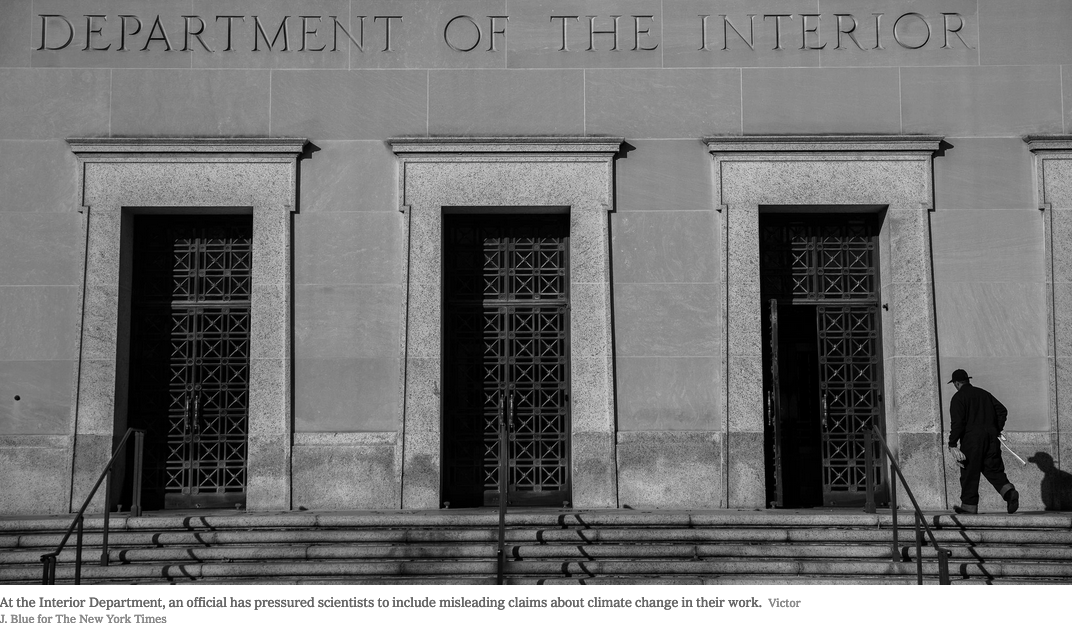An official at the Interior Department embarked on a campaign that has inserted misleading language about climate change — including debunked claims that increased carbon dioxide in the atmosphere is beneficial — into the agency’s scientific reports, according to documents reviewed by The New York Times.
The misleading language appears in at least nine reports, including environmental studies and impact statements on major watersheds in the American West that could be used to justify allocating increasingly scarce water to farmers at the expense of wildlife conservation and fisheries.
The effort was led by Indur M. Goklany, a longtime Interior Department employee who, in 2017 near the start of the Trump administration, was promoted to the office of the deputy secretary with responsibility for reviewing the agency’s climate policies. The Interior Department’s scientific work is the basis for critical decisions about water and mineral rights affecting millions of Americans and hundreds of millions of acres of land.
The wording, known internally as the “Goks uncertainty language” based on Mr. Goklany’s nickname, inaccurately claims that there is a lack of consensus among scientists that the earth is warming. In Interior Department emails to scientists, Mr. Goklany pushed misleading interpretations of climate science, saying it “may be overestimating the rate of global warming, for whatever reason;” climate modeling has largely predicted global warming accurately. The final language states inaccurately that some studies have found the earth to be warming, while others have not.
He also instructed department scientists to add that rising carbon dioxide — the main force driving global warming — is beneficial because it “may increase plant water use efficiency” and “lengthen the agricultural growing season.” Both assertions misrepresent the scientific consensus that, overall, climate change will result in severe disruptions to global agriculture and significant reductions in crop yields.




